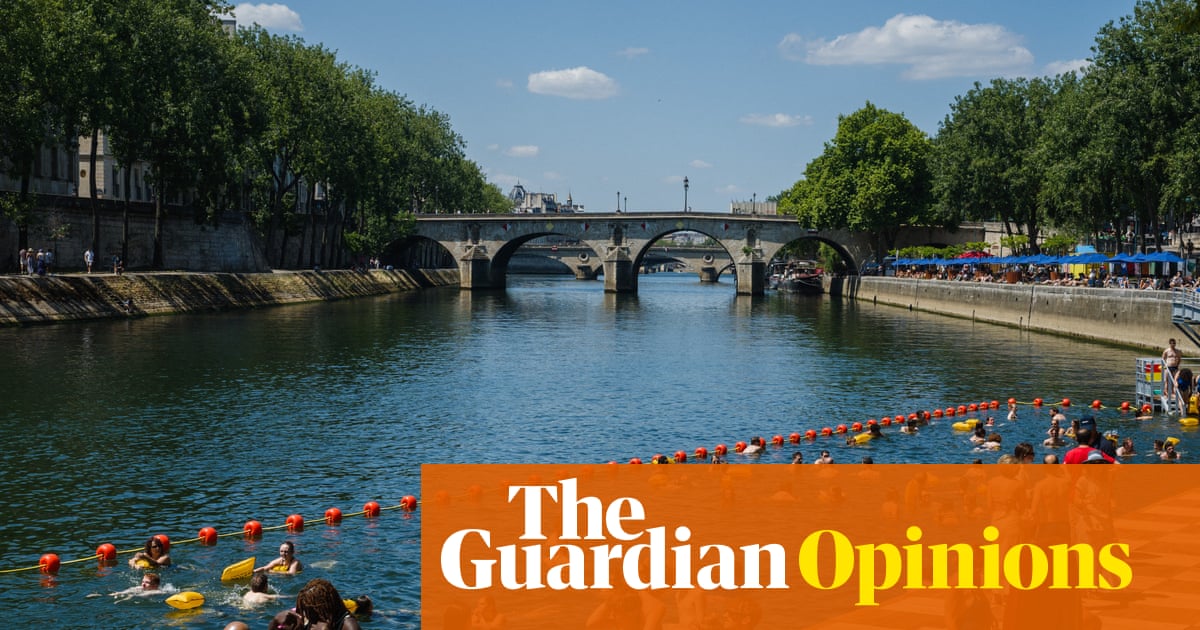
"For nearly 100,000 swimmers, one of the highlights of this summer in the city has been being able to take a splash in the cool river waters at one of the three free public bathing spots, made available this year for the first time in over a century. They are the visible culmination of a huge, multiyear river cleanup operation that goes far beyond urban swimming, giving other cities a masterclass in looking after their waterways and adapting to the climate crisis."
"In recent years, Paris and its surrounding authorities have invested 1.4bn in infrastructure improvements to improve the water quality of the Seine. Sewerage systems have been upgraded, and an enormous, 50,000 cubic metres reservoir, the bassin d'Austerlitz, has been built to stock excess rainwater during storms, reducing the amount of untreated water that flows into the river, improving water quality and encouraging biodiversity."
"Paris, one of Europe's most densely populated cities, has experienced extreme heatwaves in recent summers, and is already preparing for a 50C scenario. Around the world, governments are scrambling to protect scarce water resources as temperatures rise. One part of adapting to rising temperatures is identifying and promoting a network of cool islands, such as bathing spots or green spaces, that can help people cool off in extreme heat."
After la rentrée, swimmers in Paris can extend summer into September by using three free public bathing spots on the Seine, attracting nearly 100,000 people. The bathing sites result from a multiyear river cleanup and wider waterway improvements that support biodiversity and climate adaptation. Paris and surrounding authorities invested 1.4bn in infrastructure, upgraded sewerage systems, and built the 50,000 cubic metres bassin d'Austerlitz to store excess rainwater and reduce untreated discharges. The Seine now hosts more than 30 fish species, up from three in the 1970s. Identifying cool islands such as bathing spots helps cities manage extreme heat.
Read at www.theguardian.com
Unable to calculate read time
Collection
[
|
...
]